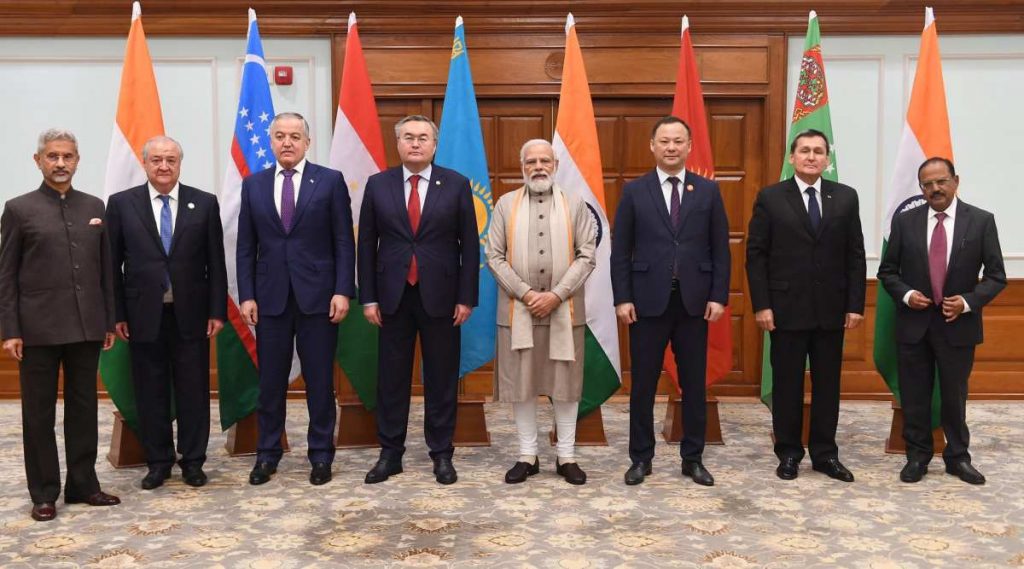A virtual tug of war has begun between India and Pakistan over handling the humanitarian-economic-political crisis in Afghanistan, each trying to rope in countries of their choice in their bid to consolidate their respective position. India hosted a dialogue in Delhi December 19 with five Central Asian countries – Kazakhstan, Kyrgyz Republic, Tajikistan, Turkmenistan and Uzbekistan. Pakistan in turn organised in Islamabad the same day the biggest conference on Afghanistan since the United States-backed government in Kabul fell in August. It was attended by envoys from 57 member nations of the Organisation of Islamic Cooperation (OIC). The eagerness of Pakistan, which had acted as a sanctuary for the Taliban during the past 20 years when the latter were hunted down by the US troops, was clear from the pronouncements of its top leaders. Pakistan Prime Minister Imran Khan made a fervent appeal to the international community to provide help to the ‘40 million Afghan citizens’ who have been plunged into a catastrophic humanitarian crisis with food scarcity and severe winter cold staring them in the face. The Taliban government is plagued by international isolation and the consequential freezing of its financial resources worth billions of dollars causing serious funds crunch.
India on the other hand pitched for finding ways to help the Afghan people, but insisted on the formation of an inclusive government in Kabul that, in its perception, presupposes any solution to the Afghan crisis. In his opening remarks at the third India-Central Asia Dialogue, External Affairs Minister S Jaishankar spelt out the goals India has set for it and the five Central Asian countries. These include a ‘truly inclusive’ and representative government, fight against terrorism and drug trafficking, ensuring unhindered humanitarian assistance and preserving the rights of women, children and minorities as key priorities in Afghanistan. The objectives are in keeping with the concerns of the six countries which fear a backlash harming their economic and political interests if the Taliban are given a carte blanche to rule Afghanistan the way they want.
In a clever way the intentions were couched in a diplomatic language when Jaishankar said, “We must find ways of helping the people of Afghanistan.” He floated a ‘Four C’ approach focusing on commerce, capacity enhancement, connectivity and contacts to further expand the cooperation between the two sides. However, the fact remains the volume of trade and commerce between India and the five Central Asian countries has so far been negligible. It is less than 2$ billion per annum. Jaishankar also underlined the need for having diversified supply chains and more regional solutions to various challenges. In the past few years, although India has been focusing on expanding overall cooperation with the energy-rich Central Asian countries, considering them to be part of its extended neighbourhood yet it has not put in the desired push because it could not predict the Afghan crisis and act judiciously. The recent developments in Afghanistan have only increased manifold the importance of the Central Asian countries with three of them – Tajikistan, Turkmenistan and Uzbekistan – sharing borders with war-ravaged Afghanistan.
The foreign ministers sought to use the current crisis in Afghanistan to forestall any attempt to export terror and commit cybercrimes directed against their countries. Predictably, their joint statement ‘condemned’ terrorism in all its forms and manifestations. The language leaves no one in doubt about their intent to send the message across to the Taliban regime that providing safe haven, using terrorist proxies for cross-border terrorism, terror financing, arms and drugs trafficking, dissemination of a radical ideology, and abuse of cyber space go against the basic principles of humanity and international relations. While none of these countries recognise Taliban, only Tajikistan has taken a strong stand against any bilateral contacts with the group after it took control of Afghanistan August 15, 2021. Turkmenistan and Uzbekistan have re-opened their missions in Kabul. They have also exchanged ministerial level visits with Kabul, as have Kazakhstan and the Kyrgyz Republic. India has thus far met Taliban leaders publicly only twice, in Doha and Moscow.
One takeaway for India from the meeting is that in the face of Pakistan refusing to allow land trade from India, the five Central Asian countries expressed their keenness to make more use of the sea route via Chabahar, which is connected to Central Asian countries by road and rail through Iran and the International North South Transit Corridor (INSTC) going via the Iranian port of Bandar Abbas. Pakistan appears to be playing smart and it sought to use the common denominator of Islam connecting the OIC countries to bail the Taliban-controlled Afghanistan out of the crisis.
Diplomacy and humanitarian aid should move hand in hand to make the Taliban see reason and wake up to the reality of a liberal world unhindered by varied forms of coercion. Till now the Taliban regime has only declared that it believes in respecting women, but it has not yet made clear whether women will be allowed to pursue studies in classrooms or work in offices. If the Taliban want access to their assets locked in foreign banks and stop economic collapse, according freedom to their women and children seems to have emerged as an important criterion.
